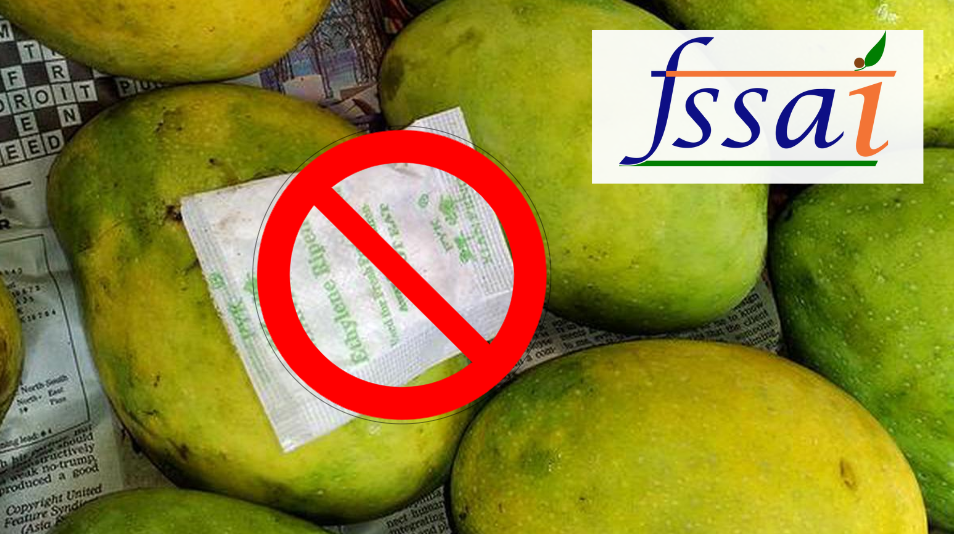FSSAI Warns Against Using Calcium Carbide For Fruit Ripening
A notice from the Food Safety and Standards Authority of India (FSSAI) to traders and Food Business Operators (FBOs) directly targets the illegal use of calcium carbide to make fruit ripen. During the mango-ripening season, this rule is enforced even more strongly. The Food Safety Authority of India (FSSAI) has warned about the health risks of this drug and told state Food Safety Departments to take tough action against people who break the FSS Act, 2006, and its rules.
What are the Health Risks of Calcium Carbide?
Acetylene gas is made by calcium carbide, which was once commonly used to make fruits like mangoes riper. This gas has harmful elements of arsenic and phosphorus, which are commonly called “masala” and are bad for people’s health. Exposure can cause signs like dizziness and irritation, as well as more serious problems like vomiting and sores on the skin. Handlers who might come into close contact with these dangerous substances are also at risk.
Legal Framework and Prohibitions
The Food Safety and Standards (Prohibition and Restrictions on Sales) Regulations, 2011, make it clear that calcium carbide can’t be used to ripen food. This is because it is very bad for your health. To protect consumers and make sure rules are followed, these rules tightly ban the sale or display of fruits that have been artificially ripened with acetylene gas.
What is the alternative method?
Calcium carbide is dangerous, so FSSAI encourages the use of ethylene gas as a safer and acceptable way to ripen fruit instead. ethylene gas is a natural plant hormone that speeds up the ripening process. It works like a fruit’s natural process of becoming fully ripe, but it doesn’t have any bad effects. It can be used in amounts of up to 100 parts per million (ppm), which are changed based on the type of fruit and how ripe it is.
More About FSSAI
- The Food Safety and Standards Authority of India (FSSAI) was established in 2006 under the Food Safety and Standards Act.
- FSSAI brings together several different acts and orders that used to handle food-related problems in different Ministries and Departments.
- FSSAI sets standards for food items to make sure they are safe to eat.
- It controls how food is made, stored, moved, sold, and brought into the country.
- Businesses that deal with food must get permits from FSSAI under the Food Safety and Standards Regulations, which were put in place in 2011.
- All food labels that come in packages must have the FSSAI approval logo on them to show that they meet safety standards.
- The headquarters of FSSAI is located in New Delhi.
- FSSAI manages the ‘Eat Right India’ movement to promote healthy eating habits.
- The slogan ‘Safe Food, Tasty Food’ is used to raise consumer awareness about food safety and quality.
Month: Current Affairs - May, 2024
Category: India Nation & States Current Affairs








